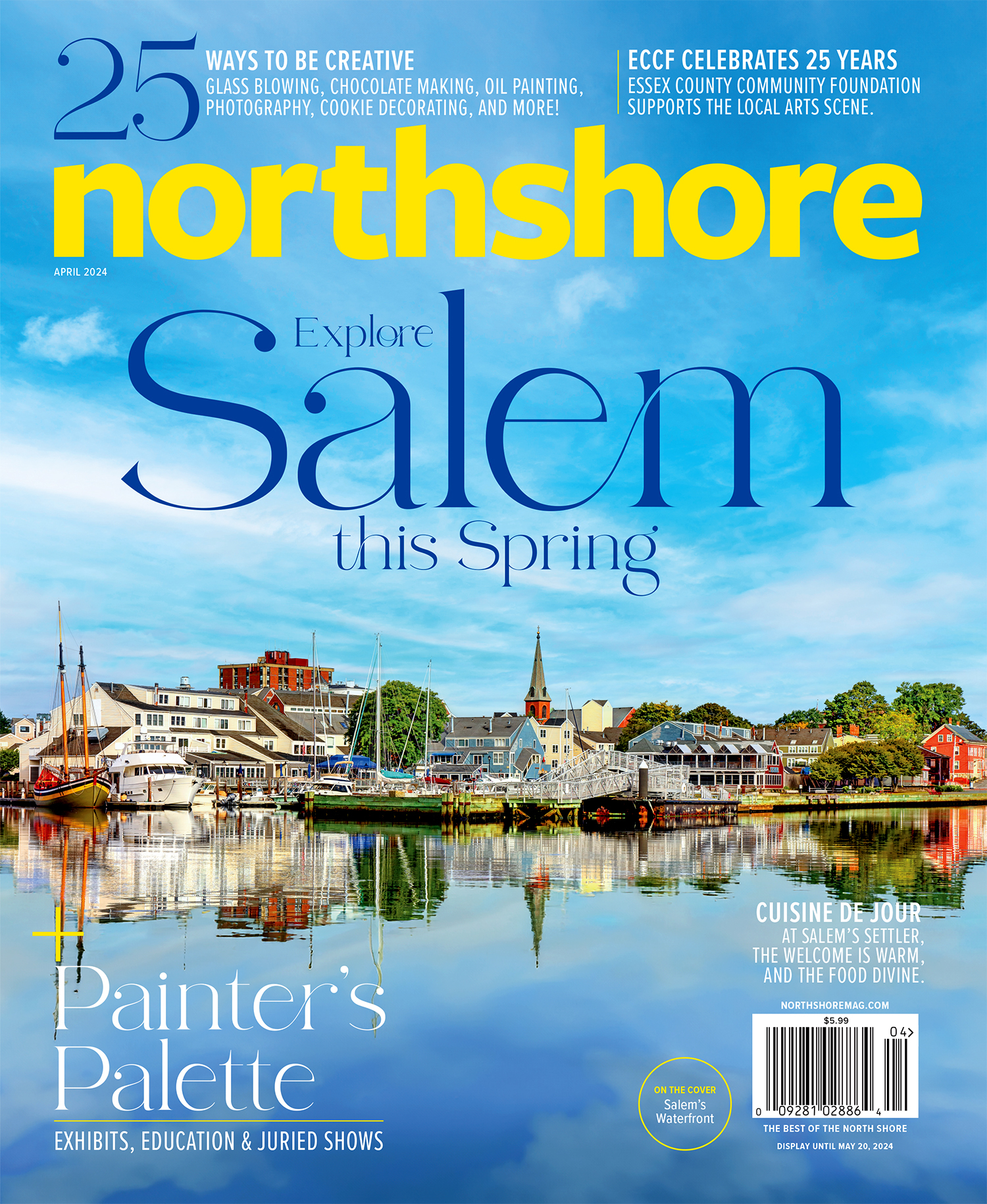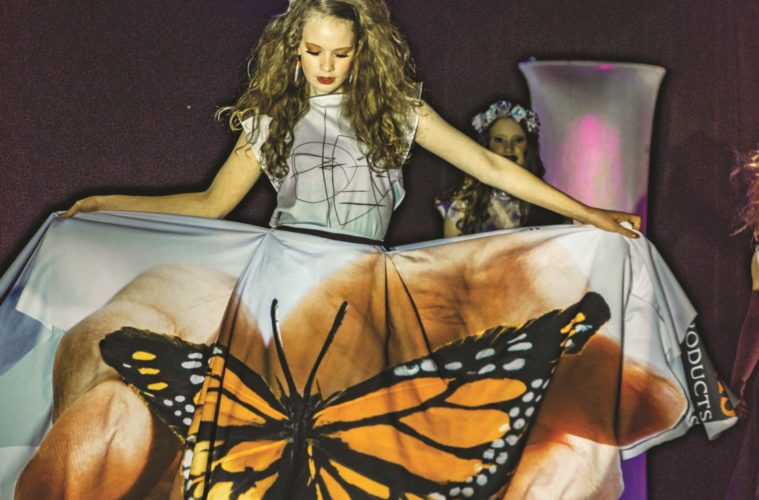The silky couture dress, gently draped over the model’s body and sweeping into a lavish skirt printed with one elegant butterfly, floats down the runway, tasteful jewelry adding a sparkling note. The striking ensemble’s materials? A confection of plastic bags, a used tablecloth, discarded lab vials turned into earrings, and a cast-off zipper used as a necklace.
Welcome to the Rubbish to Runway Refashion Show, an unlikely melding of high fashion and discarded trash. The annual event, held on April 27 this year, raises money for schools to be constructed in developing countries using sustainable building practices, while it also reduces waste in the North Shore business community and expands minds regarding what is considered beautiful.
Instead of expensive fabrics and designer jewelry, the components of these outfits are made of upcycled waste: venetian blinds, melted record albums, plastic forks, and reams of plastic bags, all given the cachet of high fashion.
“We try to use whatever we can and not buy anything,” says Melissa Montello of Groveland, who designed the flowing dress adorned with the butterfly. Montello, also a Rubbish to Runway committee member, is a scientist at New England Biolabs in Ipswich, one of many North Shore businesses that contribute funds—and waste—to the event.
Rubbish to Runway was begun by Elizabeth Rose of Georgetown to raise funds for Long Way Home, a nonprofit that constructs self-sufficient, “green” schools in Guatemala through sustainable design and building practices. Rose, now a board member of Long Way Home, began her relationship with the program when she and her husband, Joe Hull, then a physician at Anna Jaques Hospital, went to Guatemala to teach English, bringing their two youngest children, teenagers at the time. “We wanted to show them that their situation wasn’t a guarantee for everyone,” Rose says.
While in Guatemala, Rose and her family met Matt Paneitz, a Texan who invited the family to see his volunteer project: an ecopark he was building on an abandoned piece of property. Paneitz founded Long Way Home, and today the nonprofit has built a school that teaches its students both academic subjects and how to sustain the environment by building compostable toilets, energy-efficient stoves, water reservoirs, and other transformational appliances. Rubbish to Runway provides funding for the effort, so far donating about $70,000 to Long Way Home.
Rose and her volunteer staff have found ample support in the North Shore Community, including many biotech labs. Other business donors include the New England solar business ReVision, the Connecticut company Viv, and UMG, a Danvers-based technology company. The Newbury boarding school The Governor’s Academy has donated space for the show and will be building the runway.
The designers come from all over New England. This is the fifth Rubbish to Runway for designer Carolyn R. Russell of West Newbury. Rubbish to Runway and Long Way Home embody much of what Russell cares about. “We believe that education should be a right, not a privilege,” she says.
“Environmental stewardship is of great importance to us, too. And the creative passion that designing for the show ignites is icing on the cake.”
As the business community, designers, and others rev up for this year’s runway show, excitement is building. At press time, Russell was waiting for the materials she would receive from her corporate sponsor this year, Strem Chemicals in Newburyport. “My plan is to create a funky but formal dress.”
Montello is designing three dresses, one for UMG Technologies, one with waste from New England Biolabs, and one for Lisa Ann Schraffa Santin, a personal stylist and show sponsor. “All the dresses are surprises until they’re on the runway.”

